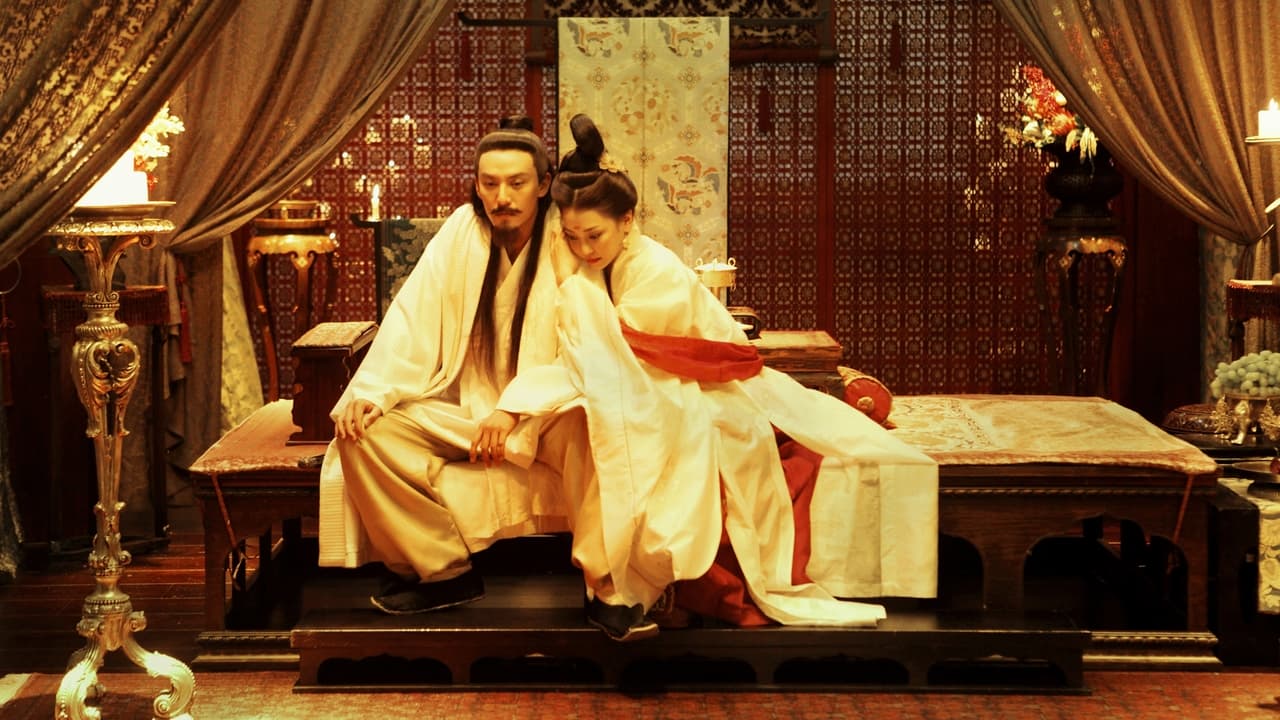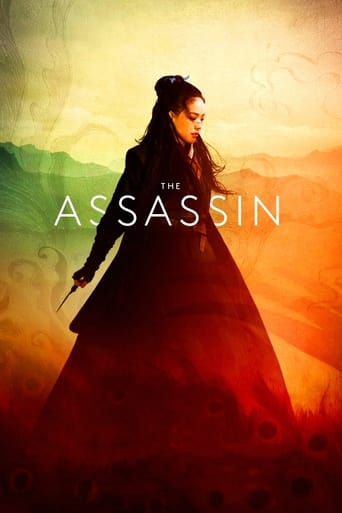

Assassin (Mandarin Chinese: Niè Yinniáng) (2002) Fluttering, crackling, Bubbling, glowing, sashaying, Resplendent costumes, Cinematography and Set design are breathtaking. Auteur Hou Hsiao-hsien Made a visual masterpiece, Sadly, not much else. Painfully slow, confusing. Felt nothing for characters. Somonka is a form of poetry that is essentially two tanka poems, the second stanza a response to the first. Each stanza follows a 5-7-5-7-7 syllable pattern. Traditionally, each is a love letter. This form usually demands two authors, but it is possible to have a poet take on two personas. My somonka will be a love/hate letter to a film? #Somonka #PoemReview
... View MoreI love martial arts movies. Always have. And there are some great ones out there: Hero, Crouching Tiger Hidden Dragon, House of Flying Daggers etc The Assassin can not in any way be classed as a great movie - only because of the ridiculous slow pace. There's slow, and then there's this. It's cringeworthy how slow it is in places. I even, on occasion, counted the number of seconds when nothing happens and it came to 5-10 seconds, when nothing, literally nothing happens. The viewer is left frustrated. I can understand that a slow pace is common in 'arthouse' movies, but even then there is usually something happening even if there is no dialogue. Frustrating, pointless, and an empty experience. Watch something else...
... View MoreI watched this movie with a few friends. We had no idea what to expect. Unfortunately we were intensely bored and disappointed. It's an insufferably boring "film" that pans across disparate elements that never seem to tie together at all.It took far too long. It made little sense and was intensely boring. The most interesting element was the old man with the white beard getting shot with crossbows. Aside from that there was far too much attempted, meaningless symbolism.For much of the film, especially in many of the later scenes of the movie, I really did not know who the characters were or what they were trying to accomplish. The film would introduce random characters with no explanation as to who they were or who they were interacting with. Then whisk them out again never to be seen again. They may as well have not been there. In fact they shouldn't have been since they served no purpose for the story and cluttered the scenes.Avoid it.
... View MoreHou Hsiao-hsien's "The Assassin" is a very introspective, metaphorical and philosophical wuxia movie that requests a lot of patience from its audience. It's more like a slow-paced historical drama than anything else. It's comparable to Wong Kar-wai's episodic, mysterious and sophisticated "Ashes of Time". Both movies received critical acclaim by intellectual movie critics but were mostly despised by regular audiences. Since the trailers aren't very helpful, potential viewers should read a handful of critics and make themselves familiar with other works of these particular directors in cases like "Ashes of Time" and "The Assassin" before watching such a film.There are less than a handful of fighting scenes and only a few secondary murder scenes in the movie despite its title and those scenes are not necessarily spectacularly executed.The movie doesn't have a lot of continuous dialogues but the few words that are spoken are meaningful and help the audience to understand the twisted story that unfolds slowly but surely. A lot of things are explained through facial expressions, still lives and symbols of nature which aren't always obvious to understand. The movie is so slow yet precise that it requests a lot of attention and maybe even multiple viewing to fully grasp its content. The acting performances seem restricted and wooden at first sight but turn out being extremely precise and talented since the characters are all very emotional behind a veil of traditional discipline. The challenging acting performances, the calm camera work, the colourful costumes, the accurate dialogues, the diversified landscapes and the atmospheric soundtrack all add to the guiding line of this unusual film which deals with characters who are restricted in their traditional laws, rules and values but who are longing for emotions, freedom and individual fulfilment. From this point of view, the movie is more than a simple period drama and has a modern message that suggests that individual liberty is a greater good than governmental conventions. It might not come as a surprise to you that this seemingly traditional movie was made by a director who has rather identified himself with Taiwanese culture, history and values. This film seems to offer much more than meets the eye.If you are willing to look beyond the slow mood in beautiful pictures, you will discover an inspired and profound movie which offers a lot of food for thought. If you are looking for memorable entertainment, you will definitely not like this movie. I admit that this film is hard to digest and I couldn't watch this kind of cinematic art on a regular base but I appreciated the movie's hidden messages or at least my own interpretation of the ambiguous content and its coherent yet unique style. It was the director's goal to make its audience think on its own and while two of my friends who watched this movie found it dull, pointless and pretentious, I accepted, elaborated on and ultimately enjoyed its challenges.
... View More